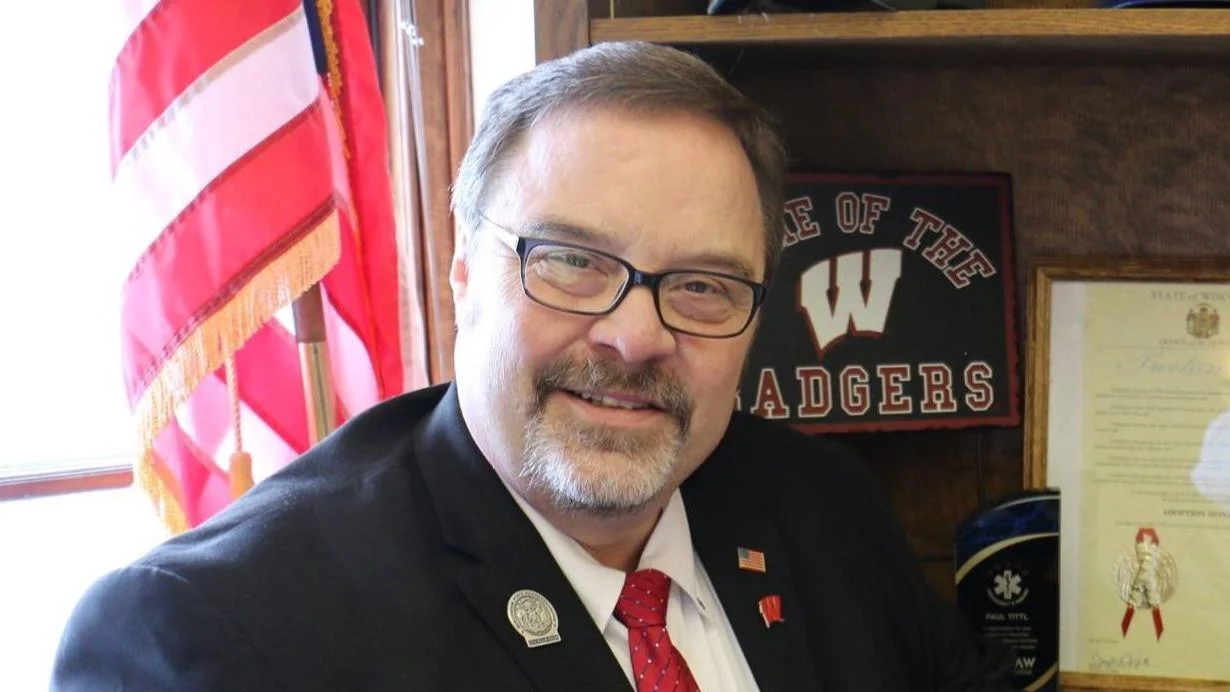Paul Tittl, Wisconsin State Representative of 25th District | Facebook
Paul Tittl, Wisconsin State Representative of 25th District | Facebook
According to the Wisconsin State Legislature's official website, the bill was described as follows: "spinal cord injury research grants and symposia and making an appropriation. (FE)".
The following is our breakdown, based on the actual bill text, and may include interpretation to clarify its provisions.
In essence, this bill mandates the Wisconsin Department of Health Services to implement a program awarding grants for spinal cord injury research focusing on innovative treatments and rehabilitation. It designates an annual cap of 8% of each grant for administrative costs. The bill establishes a Spinal Cord Injury Council comprising professionals and stakeholders specializing in spinal cord injuries, tasked with developing grant criteria, reviewing applications, and making recommendations. Additionally, it requires annual reports to the legislature and authorizes biennial symposia for grant recipients to present their research findings. The act becomes effective the day following its publication or after the 2025 biennial budget act is published, whichever occurs later.
The bill was co-authored by Senator Van H. Wanggaard (Republican-21st District), Representative Scott Allen (Republican-82nd District), Representative Clinton M. Anderson (Democrat-45th District), Representative Deb Andraca (Democrat-23rd District), Representative David Armstrong (Republican-67th District). It was co-sponsored by Senator Tim Carpenter (Democrat-3rd District), Senator Jodi Habush Sinykin (Democrat-8th District), and Senator Jesse L. James (Republican-23rd District), along 32 other co-sponsors.
Paul Tittl has authored or co-authored another 18 bills since the beginning of the 2025 session, with none of them being enacted.
Tittl, a Republican, was elected to the Wisconsin State Assembly in 2013 to represent the state's 25th Assembly district, replacing previous state representative Bob Ziegelbauer.
In Wisconsin, the legislative process starts when a senator, constituent, group, or agency proposes an idea for a bill. After drafting, the bill is introduced, numbered, and referred to a committee for review and public input. If approved, it moves through three readings and votes in both the Senate and Assembly. Once both chambers pass the same version, the bill goes to the governor, who can sign it, veto it, or let it become law without a signature. Only a small share of bills introduced each session ultimately become law. You can learn more about the Wisconsin legislative process here.
| Bill Number | Date Introduced | Short Description |
|---|---|---|
| AB92 | 02/28/2025 | Spinal cord injury research grants and symposia and making an appropriation. (FE) |
| AB80 | 02/28/2025 | Ratification of the Social Work Licensure Compact. (FE) |
| AB76 | 02/28/2025 | Creating an individual income tax deduction for certain income earned by an individual from the practice of psychiatry or from providing psychiatric or mental health services. (FE) |
| AB49 | 02/17/2025 | A minor’s authority to consent to health care |
| AB31 | 02/17/2025 | Repair and replacement of implements of husbandry under warranty |
| AB20 | 02/06/2025 | Allowing certain married persons to claim the earned income tax credit when filing a separate return. (FE) |


 Alerts Sign-up
Alerts Sign-up